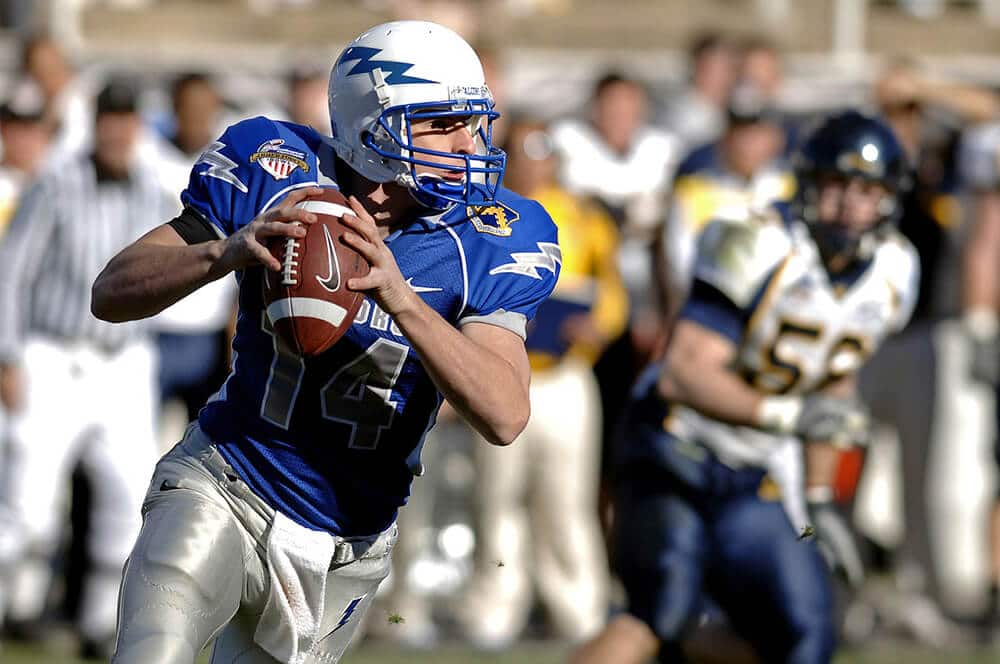FDA Authorizes New Device to Protect Athletes Against Brain Injury

Sports are a popular way to exercise, be part of a team, and to compete. However, these activities also have inherent dangers when players collide or other kinds of accidents occur. In some cases, an athlete’s head can be hit, which can cause damage to the brain.
Athletes can run the risk of sustaining a brain injury in youth sports all the way to the elite level. While protocols and equipment can help protect athletes, these methods are able to be improved because brain injuries still occur. Recently, the FDA authorized marketing of the Q-Collar, which may help protect athletes from suffering the debilitating effects of multiple impacts to the head.
How Does the Device Work?
The Q-Collar is C-shaped and worn around the neck. It provides compressive force and increases blood volume in the skull’s blood vessels. These can help reduce the brain’s movement during an impact, which can in turn help prevent the athlete from suffering from the changes that can occur to the brain when it’s bumped or jolted multiple times.
Typically, when a head impact occurs, the brain can move in the person’s skull. This can lead to swelling, bleeding, and other injuries. Because the Q-Collar increases the blood volume, this movement is reduced.
The collar can be worn with other sports safety equipment, so athletes will not have to choose one or the other. The Q-Collar is one more tool that athletes can use to help protect themselves while they participate in the sport they love.
What Did the Studies Show?
There were several studies looking into the efficacy of the Q-Collar. One study in the U.S. had 284 subjects aged 13 years and up who participated in high school football. This sport is notorious for brain injuries, which can occur when a player is tackled and hits their head on the ground or when a player is making a tackle and leads with their head. In the study, 139 athletes used the color and 145 didn’t.
All of the participants:
- Wore an accelerometer device to measure impact to the head
- Had an MRI scan before the season and after the season
The researchers were able to compare the before and after MRIs and whether or not the athlete used the collar. They were looking for structural changes that occurred over the season.
They found that of the group that wore the collar, about 77% showed no significant changes to the deeper brain tissues. However, the group that didn’t wear the collar showed that 73% of the participants were found to have significant changes to the brain.
The difference in the tissue seem to indicate that the collar’s protection is associated to protecting the brain. They didn’t find any major adverse events connected with using the device.
What Else Should You Know About the Q-Collar?
While this new technology is promising, it’s important to know that this collar isn’t a replacement for other sports safety equipment, it’s meant to be an additional piece to be worn with safety equipment. Athletes shouldn’t rely on the device to take away all the possible harmful effects during a head impact. They should still use other methods to protect their head, neck, and to reduce impact to those areas.
The Q-Collar doesn’t prevent concussion or serious head injury. If a player isn’t medically cleared to play contact sports, then they shouldn’t use a Q-Collar.
This device still hasn’t been tested for athletes with the following conditions and therefore shouldn’t be used by these athletes:
- Increased pressure in skull
- Brain or spinal shunt
- Has a seizure disorder
- Brain blood clot
- Excessive blood alkalinity
- Open head injury within the past 6 months
There are more conditions that would prevent an athlete from using the device until it’s tested. The FDA lists them all out.
Those who can wear it can use the device for four hours at a time. The device should be replaced after two years or when the device expires. While the device will be over-the-counter, it’s encouraged for athletes to consult a medical professional if they should use the collar.
Q30 Sports Science, LLC was granted marketing authorization by the FDA.
How Can Pittman Roberts & Welsh, LLC Help You
While there are devices helping to protect athletes, this may not always prevent someone from suffering multiple brain impacts. If you suffered a traumatic brain injury because of negligence, our law firm can help you protect your rights. Contact us today so we can start fighting for you.







